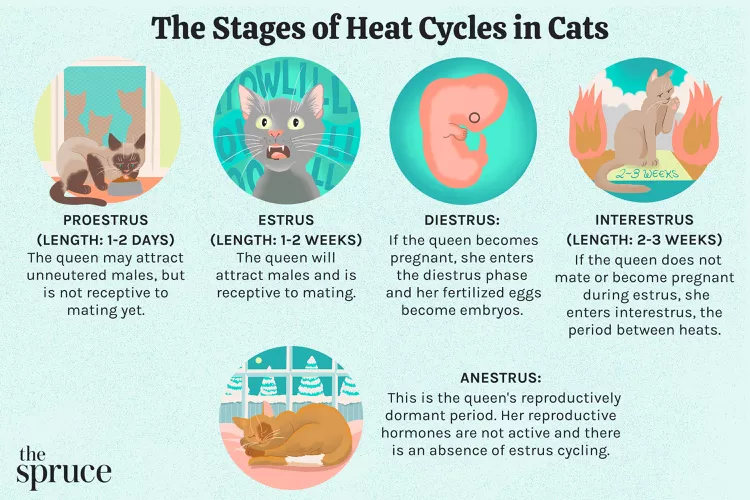
Acetaminophen, or Tylenol, is a common over-the-counter medication used by humans to relieve pain and fever. You may be tempted to give your dog acetaminophen for pain since it's available over the counter. However, this drug can be toxic to dogs.
You should never give your dog acetaminophen. If you suspect your dog needs pain relief or has a fever, seek veterinary care for your dog.
Acetaminophen is a nonprescription medication that relieves mild to moderate pain and reduces fever. It is an anti-inflammatory that also has analgesic properties to reduce pain and lower fevers. The drug has been a popular, effective pain reliever and fever reducer for human use since the 1950s.
Acetaminophen is not available in veterinary preparations and is not a recommended form of pain relief in dogs.
Acetaminophen can be highly toxic to dogs.
If your dog is in pain, your vet will prescribe a more effective, safer drug than acetaminophen. There are many veterinary pain medications to choose from that can help your pet depending on its specific needs. It is important to get your dog to the vet right away if it is in pain as this can be a symptom of many problems, and a pain reliever may mask these signs without helping to treat the underlying condition.
Never give ibuprofen (Advil) or naproxen (Aleve) to dogs as these are highly toxic. Always consult with your vet before giving your dog any medication, supplement, or herbal remedy.
There may be rare cases where your veterinarian recommends giving a pain reliever containing a low dose of acetaminophen to your dog. This is only done in very unique cases and is based on the specific health and condition of your dog. If so, you must follow your vet's recommendation for dosage and administration.
Acetaminophen is never safe for cats and is highly toxic to them.
Dogs receiving safe, low doses of acetaminophen may still experience adverse effects, such as gastrointestinal upset, liver and/or kidney issues, blood-related problems, or dry eye. The risk of potentially serious side effects makes it a poor choice for pain management in dogs, especially because there are many safe medications that can be used instead.
Acetaminophen is generally considered toxic to dogs at doses above 30 to 50 milligrams per kilogram (13 to 22 milligrams per pound). However, some dogs are more sensitive and will experience toxic effects at lower doses. In addition, frequent ingestion of acetaminophen may make dogs more susceptible to toxicity.
Acetaminophen toxicity causes damage to the liver and red blood cells. It may damage the kidneys as well. This damage creates many serious complications in the body and may lead to death.
Signs of acetaminophen toxicity typically appear around one to four hours after ingestion and tend to get gradually worse if untreated.
If you know that your dog ingested a toxic amount of acetaminophen, then you should contact your veterinarian immediately. Your vet may recommend that you induce vomiting at home or bring your dog in for them to induce vomiting under veterinary supervision. Don't try to induce vomiting at home unless your veterinarian recommends it and provides detailed instructions.
If it's been 30 minutes or more since your dog ate acetaminophen, then vomiting is unlikely to be enough. Your dog will need veterinary treatment for acetaminophen toxicity. The vet may need to give your dog activated charcoal to try to decontaminate toxins from the GI tract. A drug called N-acetylcysteine is another common treatment used to protect red blood cells and the liver from further injury. Intravenous fluids and additional medications may be necessary for supportive care. In serious cases, your vet may recommend a referral to a veterinary specialty center for more intensive care.
The prognosis of acetaminophen toxicity in dogs varies from case to case and depends on the amount of drug ingested and any underlying conditions the dog may have. As is the case with most toxins, the sooner the dog is treated, the better the chance of recovery. The best way to prevent accidental ingestion is to keep medications safely locked up and out of reach.

Exploring the Different Types of Pet-Friendly Beaches
Are you looking for pet-friendly beaches? Learn about the different types of pet-friendly beaches, their locations, and tips for visiting them with your pet.
Exploring Pet-Friendly Wineries: Types, Locations, and More
Discover the different types of pet-friendly wineries, where to find them, and what to expect when you visit. Learn more with The Spruce Pets.
Why Is My Dog’s Eye Swollen?
If your dog's eye is swollen, she may need veterinary attention. The inflammation could be caused by allergies, an injury, or even a tumor.
Can Dogs Eat Corn on the Cob?
Dogs love chewing on corn cobs, but this can cause serious harm. Learn about the dangers of corn cobs and find out what to do if your dog eats one.
Can Dogs Eat Papaya? What to Know About Sharing This Tropical Fruit With Your Pup
Papaya is safe for dogs in moderation, and it can even provide some nutritional value for them. However, too much can cause digestive upset, and it's not suitable to share with dogs with certain health conditions.
65 Irish Cat Names
Irish cat names can pay homage to historical places, local cuisine, famous Irish actors and musicians, or other wonderful aspects of the Emerald Isle.
Feline Hyperesthesia Syndrome (FHS) in Cats
Rippling skin is more than dermal sensitivity in cats. It can be a sign of Feline Hyperesthesia Syndrome. Learn the causes, treatment, and prevention.
How Long Are Cats in Heat?
How long are cats in heat? Learn about the heat cycles of cats, also called estrus, as well as the reasons you should spay your cat.
Can Dogs Eat Raw Chicken Feet?
What are the potential health benefits of chicken feet for dogs? What are the risks?
Is Eucalyptus Safe for Cats?
Many products containing eucalyptus are not safe for cats, and it is important to be aware of the risks to your cat.
What You Need to Know About Homemade Cat Food
If you want to cook for your cat, make sure to read about the risks associated with homemade diets for cats
Can Cats Eat Peanut Butter?
Peanut butter is not toxic to cats, but it might not be the best choice of treat for them.
Can Cats Eat Cheese?
Can cats eat cheese? Is it healthy for them? How much can they eat and what should you do if you fear your cat has eaten too much cheese?
8 Flat-Faced Cats with the Cutest Smooshed Faces
These flat-faced cat breeds have a distinct and adorable appearance. Learn about their origins and traits, and the potential health risks tied to their unique facial structures.
Pictures and Facts About Bengal Cats and Kittens
Bengal cats are a cross between wild cats and domestic cats. Learn more about what they look like and pictures of this beautiful spotted breed.
Top 10 Big House Cats
Larger cat breeds, like Maine coons and savannahs, deserve just as much love as their petite counterparts. These big house cats tip the scales.
Cairn Terrier: Dog Breed Characteristics & Care
The cairn terrier is a spunky, affectionate, and intelligent dog from Scotland. The breed became famous when one played Toto in The Wizard of Oz. Learn about the temperament, history, health, and care needs of the cairn terrier dog breed.
Reasons Why Dogs Grind Their Teeth
Some dogs grind their teeth. Learn why dogs grind their teeth and if it can be harmful. Find out what to do about teeth grinding in dogs.
This Is Why Some Dogs Lean on People
Certain dogs really love leaning on their humans. What does this mean? Find out why dogs lean on people and if this is ever a problem.
Can Dogs Get Depression? How to Help Your Sad Dog
Can dogs get depression? Learn about the signs of depression in dogs and find out how to help your sad dog.